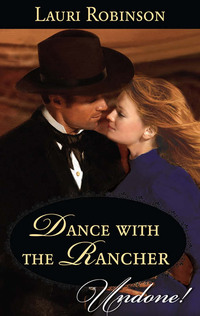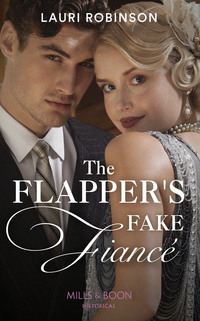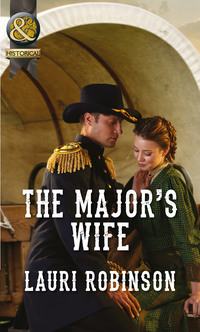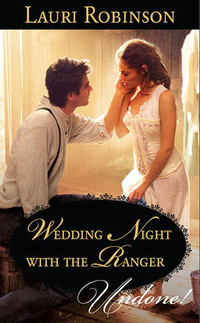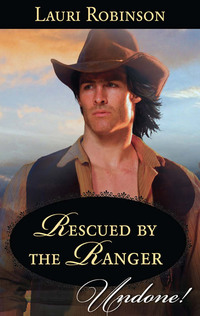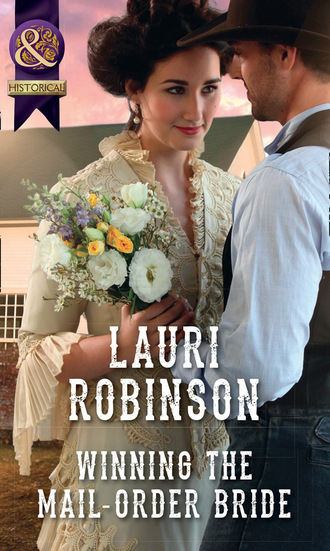
Полная версия
Winning The Mail-Order Bride
“I’ve instructed that your belongings be delivered to the house,” Josiah said as he grasped her elbow and started walking along the platform. “This way. It’s on the other side of the tracks. The house is owned by the town and with my permission you’ll be allowed to stay there, rent-free, for this upcoming week, after which time we will be married. Next Saturday. At the church.”
A river of fear raced through her, once again making her question what she was doing. “One week is not very long to get to know someone,” she said quietly.
“I believe I’m being generous, Fiona. You agreed to marry me. I could have had that arranged for today. Furthermore, I just paid for three train tickets from Ohio to Kansas. That wasn’t cheap.”
It took considerable effort to get past the flare of anger that started to swirl inside her. She was here and would make the most of it, but she wouldn’t be belittled. “I’m sure it wasn’t, Mr. Melbourne, and yes, that is correct, I have agreed to marry you, but a small amount of time for the boys to get used to the idea would not be unfair to them, or me. It’s only been six months since their father—”
“That is not my problem,” Josiah said.
It wasn’t his problem, it was hers, and her hope of this being a solution was souring quickly. After church one Sunday a few weeks ago, Reverend Ward’s wife had told her about Oak Grove’s willingness to pay for the westward passage of any woman who would agree to become a mail-order bride. Mrs. Ward had heard about the invitation for brides from her sister over in Bridgeport and had quite openly suggested that the best thing Fiona could do for her and the boys was to leave Ohio.
Understanding they’d worn out their welcome at the church—if they’d ever been welcomed—Fiona had gone home that night and penned a letter to Josiah himself. Mrs. Ward had conveniently given her the name and address. Fiona had included her picture, not wanting anyone to be disappointed, for she’d never claimed to be a beautiful woman. She was too tall for that and her hair too dull and lifeless. She’d also been completely honest in explaining she was a widow with two young sons, and that although she didn’t live in Bridgeport, had never been there, she had heard about Oak Grove’s need for brides and hoped she qualified.
The hold Rhett had on her hand tightened as they stepped off the platform. She looked down and smiled at him, wishing there was another way to ease the apprehension on his young face.
“The week I’m offering is not for you or the children,” Josiah said as gravel crunched beneath their feet. “It is for me to see if you will make a suitable wife. Besides being the mayor of this community, I’m an attorney. A man as prominent as myself needs to have a wife who can be looked upon just as prominently. One who understands the importance of such a position.”
Fiona bit her lips together and breathed through her nose. She’d never been looked upon prominently. However, she had her pride, and honor, and could hold her head up despite the worst of situations. She’d been doing that for the past six months in ways she’d never had to before. And would continue to, if for no other reason than the sake of her sons. “I explained the untimely and unfortunate death of my husband in my letter, Mr. Melbourne, and—”
“Yes, you did, Fiona, and let me assure you, if I deem you worthy of being my wife, neither your husband’s death, nor his infractions, will ever concern you again.”
She bit her lips together again and willed her anger to ease. He wasn’t a tall man. The top of his head was about level with her chin, and his shoulders twisted back and forth as he strutted along beside her. He was rather rude and pompous, but those were all things she could and would overlook in order to see her children clothed, fed and living under a roof that didn’t leak. She’d had to overlook worse things.
In fact, she’d been overlooking things her entire life. Having been taken in as a small child by family members who’d already had enough mouths to feed had instilled a certain amount of accepting things as they were.
Drawing a deep breath, she said, “I thank you for this opportunity, Mr. Melbourne. Perhaps once you’ve shown me the house, you can enlighten me with a list of your expectations.” As long as she knew what had to be done, she could do it.
The smile he bestowed upon her made her insides gurgle, as did the way his chest seemed to puff outward.
“I knew you’d be trainable from the moment I read your letter, Fiona. I’m so glad I wasn’t wrong.”
Knowing full well it wasn’t what he was referring to, Fiona couldn’t stop herself from replying, “I’ve been housebroken for some time, Mr. Melbourne. All three of us have been.”
Chapter Two
Content that his afternoon of fishing had been just what he’d needed to put things back in perspective, Brett hauled his catch home to clean and fry up. He took the same route back, skirting the boundaries of town. Even though his melancholy had lifted, he still had no desire to attend the reception continuing to take place. Actually, all his alone time had put him in a considerably good mood. The Olsens who lived several miles from his family’s mill had as many girls in their family as his had boys. Two of his seven brothers had married Olsen girls, and he was mulling over the idea that his mother might investigate if another one of the Olsen girls would be interested in moving to Kansas. That might be easier. Already knowing the gal she sent him. Ma knew most every family in northern Wisconsin, so it could be someone other than one of the Olsen girls. That would be fine too.
It wasn’t like him to ask for assistance. He’d rather give it than accept it, but writing home wasn’t that much different than donating to the Betterment Committee had been. At least that was what he was telling himself. Most of the single men in town had anteed up the money the mayor had deemed necessary in order to have a chance for one of the mail-order brides to consider them a viable husband.
The idea he’d sent that telegram to his mother took on more solid roots as Brett cleaned the six catfish. Matter of fact, he’d bet she’d be right pleased to help out. That was how she was, always willing to help whoever needed a bit of assistance.
Once he had the fillets soaking in a dish of water on the kitchen table, he went to collect a shovel in order to bury the heads and entrails. Although his mother had raised only boys, she hadn’t shied away from making them understand that keeping a clean house was just as easy as keeping a dirty one.
Stepping out his back door, Brett paused at the sight of two young boys examining the fishing pole he’d left leaning against the porch railing. He glanced left and right before looking at the boys again.
Not recognizing the two boys as any he knew in town, Brett asked, “Where did you fellas come from?”
The taller of the two, and presumably the older, pulled the smaller boy away from the fishing pole. “Over there,” he said while pointing toward the field that held the one house the city had erected so far.
The smaller of the two dark-haired boys cast a wary gaze at Brett as he scooted behind the taller one.
“We didn’t touch your pole,” the older one said. “Just looked at it.”
Brett understood his deep voice and heavy northern accent took some getting used to, so he tried to speak more softly. “You can touch it. It’s a sturdy pole. I’ve had it a long time and have caught a good amount of fish with it.”
The younger boy peeked around the older one, glancing from the pole to his brother, who shook his head.
“That’s all right,” the older one said. “I can tell it’s a good pole from here.”
“A fisherman, are you?”
The boy shrugged.
Brett would guess him to be about seven or eight. “You must be. Only a fisherman knows a good pole by just looking at it.”
“I like to go fishing,” the younger boy said. He might have said more if the older one hadn’t frowned at him.
“Me too.” Brett then glanced across the field again. “Are your parents thinking of buying the house from the city?”
“No,” the older one said. “The mayor’s letting us stay there for a week.”
“He is?” That didn’t sound like Melbourne, unless there was a cutback in it for him, but that wasn’t something Brett would discuss with a child.
“Yes, he is,” the boy replied before asking, “Why do you talk like that?”
Brett wasn’t insulted. There had been a time when he’d tried to alter his accent, but that was more work than it was worth. This was the way he’d talked his entire life, and he figured he’d go right on doing so. He patted the boy on the head while walking down the steps. “Because I’m not from around here. I lived up north, by Canada, until a couple of years ago when I moved here.”
“We saw you carrying the fishing pole,” the younger boy said as they both started walking beside him. “And some fish.”
“Ya, I went fishing. Caught a fine batch of cats.” He held out the bucket. “Gotta bury the innards.”
The younger boy, most likely having figured out there was no need to be scared, pointed toward the bucket. “Ma used to bury those in the garden.”
“That’s what my ma would do too. Or have me or one of my brothers do it,” Brett answered while stopping at the tool shed door. “But seeing I don’t have a garden, I’ll bury them out by that little tree.”
“You don’t have many of those around here,” the older boy said.
Brett entered the shed, grabbed the shovel and stepped back out. “Trees?”
The boy nodded.
“No, we don’t,” Brett agreed. “I’d like to see a few more, that’s for sure.”
Both boys started walking beside him again. “There were lots of trees in Ohio,” the younger one said.
“Ohio? Is that where you’re from?” Brett asked.
“Yes.”
The tone of the older boy said he’d rather be back in Ohio. Brett figured that was how most children felt when it came to moving away from their home and didn’t begrudge the youngster whatsoever. “Never been to Ohio. But we had lots of trees in Wisconsin. Say, what are your names?”
“I’m Wyatt, and this here is Rhett.”
“I’m five,” Rhett supplied.
“Wyatt and Rhett, you say,” Brett said while setting down the bucket near the small and only tree on his property. “Well, my name is Brett. Brett Blackwell.”
“Hey, your name sounds like my name. Brett. Rhett.”
“That it does,” Brett answered the younger boy while jabbing the shovel into the ground. “But I’m a lot older than five.”
“How long you lived around here?” Wyatt asked.
“More than two years. Oak Grove is a nice town. I’m sure your folks will like it.” The hole was deep enough. Brett set aside the shovel and dumped the bucket’s contents in the hole and then grabbed the shovel to replace the dirt. “You two will too once you get to know others.”
“We already know others,” Wyatt said.
There was so much anger in the boy’s voice Brett had to follow the glare Wyatt was casting across the field. Right to the house the city had for sale. “Who?” he asked. “Who do you know?”
“The mayor.”
Brett nodded. “Josiah Melbourne likes to hear himself talk, but he’s not so bad once you get to know him.”
“I don’t want to get to know him any more than I already do,” Wyatt said.
“Me neither,” Rhett said. “He told us to go outside and not come back in until he leaves and that was a long time ago.”
Carrying the empty bucket and shovel, Brett started walking back toward his house. “Probably because he has some important business to talk about with your folks.”
“Like when he’s gonna marry our ma.”
Brett stumbled slightly. “Marry your ma? Where’s your pa?”
“Got hisself killed back in Ohio,” Wyatt said. “That’s why we had to move here, and why Ma has to marry the mayor.”
The mayor prided himself on being from Ohio, and it was an acquaintance of his rounding up brides from there—which made Brett ask, “Did your ma know the mayor when he lived in Ohio?”
“No. The preacher’s wife told Ma she had to come out here and marry the mayor ’cause folks at the church didn’t want us there no more.”
That didn’t sound like a thing any preacher’s wife should say and Brett couldn’t stop himself from asking, “She did?”
“Yes, she did.” Wyatt had both arms crossed over his chest and his squinting eyes held enough anger to make a rattlesnake take cover.
Children shouldn’t harbor such anger. Shouldn’t have to. A good portion of anger was starting to well around inside Brett too—at the idea of more brides arriving and Melbourne harboring one for himself. That wasn’t playing by the rules. The women were supposed to have a choice of who they wanted to marry.
“You gonna cook those fish you caught?” little Rhett asked.
They’d arrived back at the tool shed, and as Brett set the shovel inside, he answered, “I am. Do you boys like catfish? I got more than I can eat.”
Rhett licked his lips while looking up at Wyatt. The older boy shook his head and reluctance filled his voice as he said, “Ma probably wouldn’t like that.”
“Well, I wouldn’t want you to get into trouble with your ma, but knowing how long-winded the mayor can be, and seeing you two are hungry, and considering I invited you to eat, I don’t see how she could be too mad. Do you?”
“No,” Rhett answered while his older brother was still considering how to answer. “She promised we’d eat right after we arrived in town, and that was a long time ago.”
“Let me rinse out this bucket, then we’ll go cook us some fish,” Brett said. “We’ll leave the door open so we can hear if she hollers for you.”
Wyatt appeared to agree with that and held out a hand. “I’ll rinse out the bucket. Rhett’s been hungry for hours.”
Brett handed over the bucket, but not until he asked, “Didn’t they feed you on the train?”
“Just once a day,” Wyatt answered. “Last night was the last time we ate.”
Brett grasped Rhett’s little shoulder to lead him up the steps while gesturing toward the well for Wyatt to find the water to rinse out the bucket. “Come on, little feller. Let’s get something in your stomach.” He’d always liked helping others, but thinking about these boys not eating since last night had a powerful bout of sorrow rising up inside him. As children, he and his brothers ate nonstop because that was what boys did. His mother used to say they had hollow legs, but she’d never not let them eat. Never not had a pantry full of food. It wasn’t until he’d gotten older that he realized how lucky that had made him. How rich, not in money, but in life, that had made him. That was part of what made him willing to share whatever he had with whoever needed it.
“Where’d you get so many eggs?” Rhett asked, pointing toward the wire basket on the counter.
“I bought them over at the mercantile.” Seeing how the boy’s eyes were glued on the basket, Brett said, “We’ll fry some to go with the fish.”
“We will?”
Brett nodded while starting a fire in the stove. “Sure enough will.” When he was young and snatched a cookie or slice of bread before a meal, his mother would say he was going to spoil his appetite. That hadn’t happened and he doubted it would for this little feller either. Brett shut the stove door and opened one of the warming oven doors to take out a plate of biscuits he’d purchased from the bakery yesterday. “Here, go ahead and snack on one of these while I get the fish and eggs frying.”
Rhett needed no further coaxing. Neither did Wyatt. By the time the fish was frying, they’d each eaten two biscuits. While they’d been taking the edge off their hunger, Brett had been telling them about other children living in town, mainly the hotel owner’s two rambunctious boys. He also told them about the school and how they’d meet many other children there.
Rhett seemed excited, but Wyatt was hesitant. At seven, he carried a big load on his shoulders, and Brett couldn’t help but wonder what had put it there.
“You boys know how to set a table?” he asked while cracking an egg on the edge of the frying pan. With no sisters, he and his brothers had set the table many times while growing up.
“Yes, sir,” Rhett answered.
“You’ll find everything in that cupboard.” He pointed toward the cabinet behind Wyatt. “Don’t forget napkins.”
He was setting the plate full of fried fish on the table when a woman appeared in the doorway. She was tall and slender, and wearing a dark green dress that was buttoned all the way up to her chin, but it was the dark circles beneath her eyes that made a knot form in Brett’s stomach.
“Brett invited us to eat with him, Ma,” Wyatt said.
“You said we’d eat as soon as we got to town,” Rhett said at the same time.
She bit her bottom lip as she turned to look at him again. “I apologize, Mr. Blackwell—”
“No need to apologize, Mrs. Goldberg,” Brett said while she glanced toward her sons once again. It was obvious Josiah had told her his name, just as Wyatt had told him hers. “I did invite Rhett and Wyatt to supper. As you can see, I have plenty, and feeding my new neighbors would be my pleasure.” A second thought formed then, that of Josiah inviting them to eat with him. “Unless you have other plans of course. I’m afraid I didn’t think of that.”
The way she paused long enough to close her eyes briefly and swallow sent a tiny shiver up his spine. When she opened her eyes and he spotted the moisture she’d been trying to hide, he experienced a wave of melancholy that surpassed all he’d been feeling for himself the past few days.
“No, Mr. Blackwell, we don’t have other plans, and I apologize for that, as well.”
If there hadn’t been little ears nearby, he’d have asked why. Melbourne should have planned something for their first night in town. Then again, if Josiah hadn’t been aware they’d be arriving today, he might have been taken off guard, and considering Rollie Austin was one of the men who’d gotten married today, there wasn’t any place in town open for them to get a meal.
“That must be why I caught so many fish today,” Brett said while pulling out a chair for her. “I already told the boys the fish just wouldn’t stop biting on my hook.”
She glanced from him to the table and back at him. “This is so kind of you, Mr. Blackwell, but we couldn’t impose. The boys shouldn’t have—”
“No one’s imposing, ma’am.” Seeing her hesitation, he added, “I appreciate the company.”
She glanced around the room. “And your wife?”
Brett laughed. “Don’t have one.” He gestured to the table. “It’s nothing fancy, just fish and eggs, but there’s plenty.”
The indecision in her eyes had Brett holding his breath. Or maybe it was the way she was biting her bottom lip. Her face was like the rest of her, long and thin, and her eyes reminded him of a cloudy day—sort of sad and hopeless. Brett took another step closer. “You have to be hungry. Your boys sure are. Think of it as my way of welcoming you to Kansas. Once your bellies are full, you can get settled in your house and then get a good night’s rest. Tomorrow will be a new day.”
“That’s what you always say, Ma,” Rhett said.
The hint of a smile that formed on her lips put a faint shine on her face. “Yes, it is.” Turning his way, she nodded. “I’d—We’d be honored to share a meal with you, Mr. Blackwell, and we sincerely appreciate the invitation.”
“I’ll get another plate,” Wyatt said, displaying a full smile.
“I’ll help him,” Rhett offered.
The younger brother had smiled many times during their short visit, but Wyatt hadn’t, and by the smile that grew on the woman’s face, Brett would bet it was the first time she’d smiled in a while too. He wanted to know why. And he wanted to change that. Someone as pretty as she was should be smiling all the time.
“Thank you, Mr. Blackwell,” she said, holding her hand out. “I hope the boys haven’t made themselves a nuisance.”
“Not at all, ma’am.” He shook her hand, noting the soft skin on the back of her hand couldn’t hide the calluses on her palm. “Welcome to Oak Grove.”
“Thank you,” she answered softly, sincerely. “Thank you very much.”
Not quite ready to let go of her hand, he tugged her toward the table. Up close he noticed how unique her eyes were. They held no distinct color, but a mixture of gray, green and brown, and a light appeared in them as she bowed her head slightly.
With a timid smile, she said, “The fish smells wonderful.”
He couldn’t smell anything but flowers. Sweet-smelling flowers that gave off such a wonderful scent all he wanted to do was breathe it in.
“I bet it tastes just as good too.”
Brought back from fields of flowers by little Rhett’s voice, Brett let go of her hand to pull out the chair. “Let’s eat while it’s hot,” he said. “Otherwise, it’ll start to stink.” Giving Fiona a friendly wink, he added, “Fish is like that.”
Fiona pinched her lips to keep from giggling as the big man took his seat at the end of the table beside her. He was so friendly, so kind, her insides were practically dancing. This was the kind of welcome she’d hoped her sons would experience. Something that would assure them they were welcome here. That their lives would forever be changed, forever be better than they’d been back in Ohio. If only Josiah Melbourne had been so welcoming to her and her sons. He’d been more concerned that she and the children wouldn’t behave appropriately—and had gone so far as to write a list of things they could do and things they could not do. She’d nearly gnawed the end off her tongue while forcing herself to remain tolerant. And silent. As he’d suggested. Until she’d seen the boys encounter the blacksmith.
Josiah had stopped her on the way out the door, insisting that Brett Blackwell was harmless and would keep the boys busy while he and she continued to discuss their arrangement. A discussion she’d feared would never end. Her first impression of Josiah hadn’t improved much, and she was already afraid she’d made a mistake in coming to Kansas.
She’d thanked whatever lucky stars she might have left when Josiah had finally taken his leave, only to remember she didn’t have anything to feed them for supper. Arriving at Brett Blackwell’s open back door and seeing her boys seated at the table full of food had been enough to bring tears to her eyes. But it had been his charm, the way he’d coaxed her into believing he truly wanted to share this meal with them, that had broken through the tough exterior she’d tried to hold in place.
He was right, the children were hungry, and thankfully he hadn’t questioned why she hadn’t had any other plans of how to feed them this evening. He couldn’t possibly know how much this meal meant to her right now.
“Thank you,” she said while taking the platter of fish fried to a golden brown. After forking the smallest piece onto her plate, she passed the platter on to Wyatt. Brett then handed her another platter full of fried eggs. There had to be more than a dozen. She took one, the smallest, and then passed that platter on to Wyatt, as well.
As Rhett, who now had the fish platter, slid a third piece of fish onto his plate, she opened her mouth to tell him that was enough, but a large hand gently touched her wrist.
“There’s too much here for me to eat, so you boys best eat until you’re too full to swallow another bite,” Brett said.
He removed his hand from her arm and, with a nod, gestured for everyone to start eating. The boys needed no more encouragement than that, and as Fiona watched them begin eating with gusto, her own stomach flipped. She swallowed hard against the sensation that sent a lump into her throat. When she’d mentioned to Josiah that her sons were hungry, that they hadn’t eaten since last night, he’d interrupted her to point out that if it had just been her on the train, she would have had three meals a day.
Anger had flared inside her, yet at that moment, she’d never felt more trapped. Mr. Melbourne had paid for their accommodations, and she had no means to reimburse him, so she’d forced herself to once again remain silent. Furthermore, in a moment when she’d believed there had been no other option, she’d given him her word that she would marry him. Therefore, she would. She had never gone back on her word and wouldn’t now. Her children needed to know remaining true to one’s word, although sometimes difficult, was the right way. The only way.



